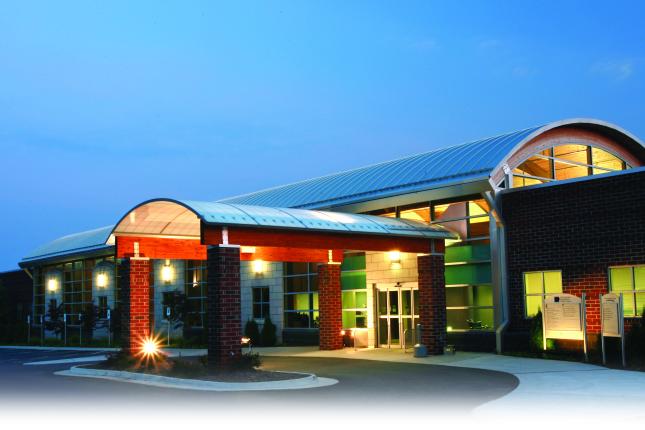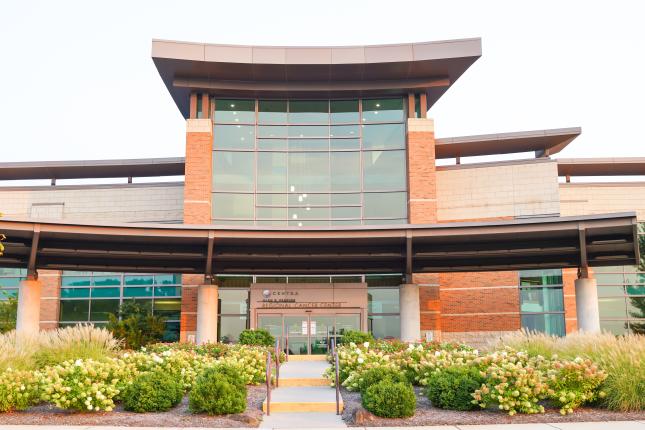Our approach to care
Your doctor may recommend cardiothoracic surgery if you’ve tried other treatments that have failed, or you’re not a candidate for less invasive treatment. You may also need surgery if you have a medical emergency or a life-threatening condition like lung cancer. It’s natural to feel nervous about having an operation. But surgery can dramatically improve your quality of life — or save your life.
Comprehensive cardiothoracic surgery options
Today, many cardiothoracic surgery procedures can be performed using open techniques or minimally invasive techniques. You and your surgeon will decide which approach is best for you based on several factors. These include your age, the severity of your condition and where inside your chest your surgeon needs to operate.
Conditions we treat
- Aortic valve regurgitation
- Aortic valve stenosis
- Arrythmia
- Atrial fibrillation (Afib)
- Atrial septal defect
- Cardiac tumors
- Collapsed lung
- COPD
- Coronary artery disease (CAD)
- Emphysema
- Empyema
- Esophagus cancer
- Heart failure
- Lung cancer
- Lung nodules
- Mediastinal tumors
- Mitral valve prolapse
- Mitral valve regurgitation
- Mitral valve stenosis
- Pleurisy
- Pleural effusion
- Pneumothorax
- Pulmonary embolism
- Thoracic aortic aneurysm
- Thymus gland disorders
- Tricuspid valve regurgitation
- Ventricular septal defect
Heart Surgery Procedures
Some of our cardiothoracic surgeons specialize in heart and blood vessel disorders. They offer many complex procedures, including:
- Aortic valve replacement or repair. Surgery to fix a damaged aortic valve or replace it with a new one.
- Atrial septal defect repair. Closes a hole between the top two chambers of your heart.
- Ascending aorta repair. Fixes a thoracic aortic aneurysm (a weak, bulging section of the aorta) before it bursts.
- Cardiac tumor resection. Removes cancerous or noncancerous tumors in the heart.
- Coronary artery bypass grafting (CABG). Creates a “bypass” (detour) that allows blood to flow around the blocked part of your coronary artery.
- Maze surgery. Blocks abnormal electrical signals that cause arrhythmias.
- Mitral valve replacement or repair. Fixes a damaged mitral valve or replaces it with a new one.
- Transcatheter aortic valve replacement (TAVR). We reach your heart — and insert a new aortic valve — by guiding a thin, hollow tube (catheter) through your blood vessels.
- Tricuspid valve replacement or repair. Repairs a faulty tricuspid valve or replaces it with a new one.
- Ventricular septal defect repair. Closes a hole between the bottom two chambers of your heart.
Thoracic Surgery Procedures
Other members of our cardiothoracic surgery team specialize in problems that fall outside of the heart. Their areas of expertise include:
- Bronchoscopy. Your surgeon passes a thin, hollow tube (bronchoscope) through your throat and down into the lungs. They can then take tissue samples, remove blockages or fix a collapsed lung.
- Decortication. Surgery to remove thick, inelastic tissue (called a pleural peel) that covers the lung and restricts lung expansion.
- Esophagectomy. Surgery to remove part or all of your esophagus.
- Lobectomy. Removes a lobe from one of your lungs.
- Mediastinal tumor resection. Removes tumors from the part of your chest between the breastbone and spine (mediastinum).
- Mediastinoscopy. Examines the area between the lungs and nearby lymph nodes, usually for the purpose of obtaining a biopsy.
- Pleurodesis. A procedure to drain fluid that’s building up around the lungs and prevent it from happening again.
- Pneumonectomy. Surgery to remove an entire lung.
- Surgery to repair traumatic injuries to the heart, lungs, breastbone or rib cage.
- Thrombectomy. Removes a blood clot that is blocking a blood vessel near the lungs.
- Video assisted thoracoscopy (VATS). Minimally invasive chest surgeries performed using a special camera called a thoracoscope.
Recovering from Surgery
The number of days you’ll need to stay in the hospital after surgery varies. So does the length of time it will take you to fully recover and take part in normal activities. Generally speaking, patients who have minimally invasive surgery instead of open surgery are back on their feet more quickly.
Team Approach to Treatment
Many people who need cardiothoracic surgery also work with other doctors. You may see other cardiovascular specialists for medical care prior to (or after) having surgery. Or your surgeon may need to team up with doctors who specialize in digestive or airway disorders. No matter how complex your condition, you’ll find the care you need at Centra.




